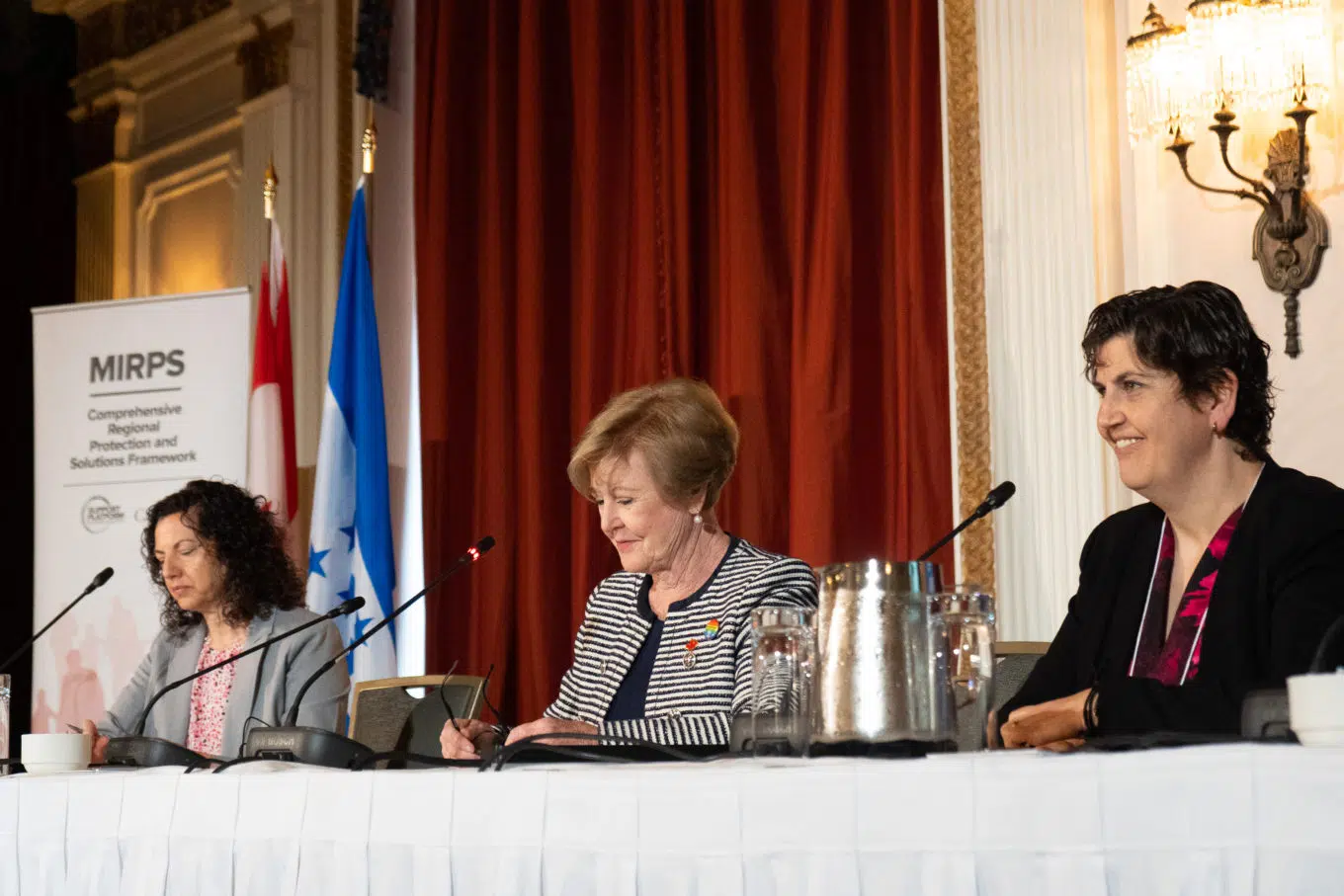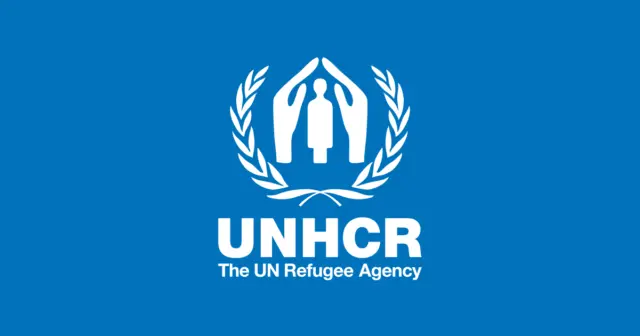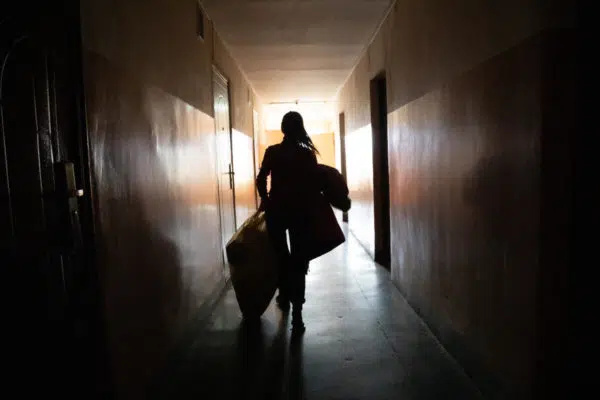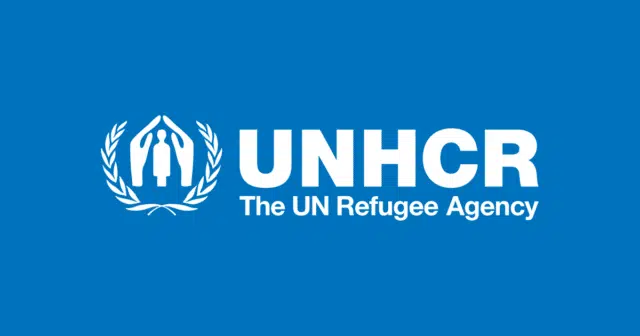
Panel on Introduction on Resettlement and Complementary Pathways. From left to right Marian Campbell Jarvis (Senior Assistant Deputy Minister Strategic and Policy Program, IRCC), Gillian Triggs (Assistant Secretary-General, Assistant High Commissioner for Protection, UNHCR) and Carol McQueen (Director General, Resettlement & Asylum Strategic Operation, IRCC). ©UNHCR/Soo-Jung Kim
Top officials of UNHCR, the UN Refugee Agency, joined a wide array of stakeholders in Ottawa, today to discuss how resettlement and other solutions for refugees can complement efforts by countries of Central America and Mexico to address the challenges of forced displacement.
UN High Commissioner for Refugees Filippo Grandi and Assistant High Commissioner for Protection, Gillian Triggs, addressed the three-day event convened by Canada, as current chair of the Support Platform for the MIRPS — a regional government-led framework for protection and solutions for forced displacement.
The gathering aims to promote the sharing of best practices to improve the lives of people forced to flee. This includes refugee resettlement or complementary pathways, such as education programmes, labour mobility schemes, family reunification and community sponsorship to facilitate the relocation of people with international protection needs.
“A dynamic, regional approach to find solutions for those in need of protection is crucial to address the needs of the forcibly displaced and better support the communities who so generously host them,” said Sean Fraser, Minister of Immigration, Refugees and Citizenship Canada during his opening remarks.
“Canada will continue to collaborate with its international partners to work on long-term solutions for those who are fleeing violence and seeking safety in another country. As a global leader in resettlement, we’ll continue to share our experience with our partners to develop a comprehensive response for those most in need of protection,” he said.
The Signature Event brings together MIRPS countries, members of the Support Platform, UN agencies, international financial institutions, the private sector, civil society, and Canada-based refugee-led organizations.
“It is vitally important that while the world is focused on Ukraine and the terrible consequences of that war, we do not lose sight of all the other crises, for the fear of violence that forces people to flee is as grave whether one is running from Ukraine, from South Sudan, from Myanmar, from Central America and many other places where each day innocent men, women and children flee in search of safety,” said Grandi.
UNHCR, which serves as the technical secretariat of the Support Platform, supports and facilitates dialogue and collaboration between different stakeholders who are committed to further the MIRPS, and support the implementation of national policy commitments to extend essential rights and services to forcibly displaced persons.
Triggs highlighted the need for countries to broaden the scope of their programmes to welcome refugees. “Against a backdrop of continuing large-scale forced displacement and deepening vulnerabilities, the joint efforts to expand resettlement and complementary pathways for admission remain a priority both as a tool for protection and solutions for some of the region’s displaced populations most at risk, and a tangible demonstration of solidarity and responsibility-sharing with countries hosting increasing numbers of persons in need of protection,” she said.
Over three days, participants will also discuss successful programmes that promote socio-economic integration and explore opportunities for international cooperation. They will also learn of the valuable contributions and engagement of refugees and other displaced persons in their host communities.
“We are grateful for the support to the people of our region through resettlement programs, complementary pathways and integration,” said Eduardo Enrique Reina García, Minister of Foreign Affairs and International Cooperation of Honduras, which holds the Pro-tempore presidency of the MIRPS. “But I would like to reaffirm that from this regional mechanism we are committed to continue to work to reduce the reasons that drive people to seek options outside our countries.”
More than one million people have been forcibly displaced in and from countries in Central America and Mexico due to violence and persecution, aggravated by inequality, chronic poverty, and food insecurity. Climate change and the impact of COVID-19 have exacerbated underlying vulnerabilities and left people across the region with no option but to flee. MIRPS countries are working together to promote a coordinated regional response to both the causes and consequences of forced displacement in Central America and Mexico. In support of those efforts, Canada announced Tuesday it would contribute to help MIRPS countries strengthen their asylum systems and reduce asylum claim backlogs.
About the MIRPS
The Comprehensive Regional Protection and Solutions Framework (MIRPS) includes Belize, Costa Rica, El Salvador, Guatemala, Honduras, Mexico and Panana. The MIRPS is a pioneering mechanism for the implementation of the Global Compact on Refugees to encourage regional cooperation among countries of origin, transit and destination for a greater responsibility sharing in matters of prevention, protection and durable solutions in the face of growing forced displacement in Central America.
About the MIRPS Support Platform
The MIRPS Support Platform was launched in December 2019 to support the efforts of the MIRPS countries. It aims to leverage support from the broadest possible range of stakeholders. Its currents members include Argentina, Brazil, Canada, Colombia, the European Union (EU), the Inter-American Development Bank (IDB), France, Spain, Switzerland, Uruguay, the United States, the Economic Commission for Latin America and the Caribbean (ECLAC), the Organization of American States (OAS), and UNHCR, the UN Refugee Agency.
For more information, please contact:
- In Ottawa, Levon Sevunts, sevunts@unhcr.org, +1 613 286 6975
- In Panama, William Spindler, spindler@unhcr.org, +507 6382 7815
- In Mexico, Sibylla Brodzinsky, brodzins@unhcr.org, + 52 55 8048 5054





